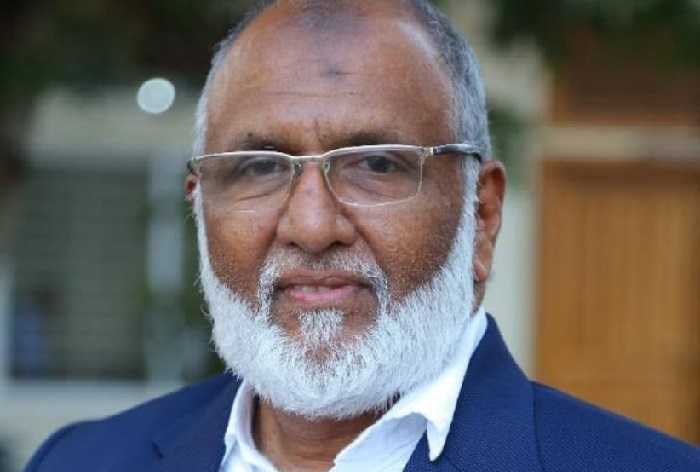Belgaum, Apr 27: A CRPF COBRA commando was thrashed and dragged to police station barefoot by police allegedly for violating lockdown norms here in Belgavi district.
Sachin Savant, the CRPF commando of 207 COBRA was arrested by police personnel of Sadalga Police Station on April 23 on the alleged charges of violating lockdown norms and assaulting/deterring public servant from discharging his duty. The incident took place when the commando was cleaning his motorcycle in front of his house at Examba.
Images of the jawan being tied up in chains and the video of the incident have created furore on social media.
Calling it an "unfortunate incident", CRPF Additional Director General (Operations) Sanjay Arora wrote to Karnataka DGP Praveen Sood.
"In an unfortunate incident, Ct Sachin Savant of 207 COBRA was arrested by police personnel of Sadalga Police Station, Distt Belagavi, on Apr 23, on the alleged charges of violating lockdown norms and assaulting/deterring public servant from discharging his duty. The individual was on extended leave and cleaning his motorcycle in front of his house, at Examba, when the incident took place," Arora said in a letter to DGP.
In the video of the incident, the commando is seen standing near a bike, while multiple police personnel indulge in a verbal spat with him. A police personnel can be seen repeatedly pushing and shoving the jawan. The commando retaliates after he was attacked with a lathi by the police.
"Reportedly, a skirmish had taken place between the COBRA commando and the Beat police personnel over wearing of a mask, following which he was manhandled and ill-treated, before his family members, and paraded to the police station barefoot, where he was kept in chains and handcuff," CRPF ADG said.
He said the viral video shows that police personnel's conduct was not "citizen-centric".
Stressing that this "unpleasant situation" could have been avoided, if the Karnataka police had taken CRPF hierarchy into confidence before making the arrest, he said: "CRPF is a very reputed force, with high standards of discipline, and we have the institutionalized mechanism for taking care of such situations."
Arora asked that Karnataka DGP to get the matter inquired and provide justice.
Meanwhile, CRPF spokesperson M Dhinakaran said the bail plea of the commando will be taken up in the court on Tuesday.
"We have taken up the case with State Police Chief of Karnataka. On Tuesday, his bail plea case is coming before the court. The CRPF will be in court through a local officer. Thereafter, an investigation into the matter shall be followed up to take it to the logical conclusion," said Dhinakaran.
Giving clarification on the matter, Belgavi Superintendent of Police told media that the CRPF jawan was found roaming with friends, who ran away on seeing police. However, the jawan was caught without a mask.
"The jawan was standing without wearing a mask. When policemen on duty asked him why he is not wearing a mask, he started arguing asking them who are you to ask and I am from CRPF, thereby violating the orders promulgated by DC," he said.
The SP also claimed that the jawan lost his cool and kicked the stomach of one of the constables.
"The jawan held the collar of the police constable and started pushing him aggressively. Another head constable, who is old, came to the rescue of his fellow colleague. Later the jawan was taken to the police station and a case was registered under various sections of IPC and Section 3 of Epidemic Disease Act against him," he said.






Comments
Well, it is good to have this kind of systems which can save lives, but we also require good roads and traffic signal systems, particularly at the major junctions like Hampankatta, Nanthoor circle, Pumpwell circle and Kankanady circle. I request the authorities to look into these for the benefit of the motor drivers and the pedestrians.
Add new comment